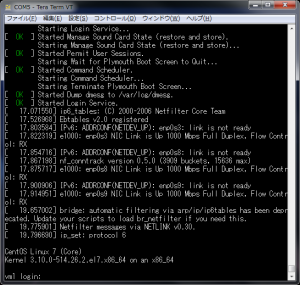TAILQでリスト管理
TAILQを使ってリストを実現する。
詳細はMan page of QUEUE参照。
tail.c
#include <stdio.h>
#include <stdlib.h>
#include <sys/queue.h>
typedef struct memEntry {
TAILQ_ENTRY(memEntry) entry;
int32_t size;
void* ptr;
} memEntry_t;
typedef struct {
TAILQ_HEAD(tq_head, memEntry) head;
int entry_count;
} mngMemPool_t;
static mngMemPool_t mngMem;
void* allocateMemory(size_t size);
void printAllMemory(void);
void freeAllMemory(void);
int main(void)
{
TAILQ_INIT(&mngMem.head);
for (int i = 0; i < 10; i++) {
void* ptr = allocateMemory(i * sizeof(int));
}
printAllMemory();
freeAllMemory();
return 0;
}
void* allocateMemory(size_t size)
{
memEntry_t* ent;
ent = malloc(sizeof(memEntry_t));
if (NULL == ent) {
printf("out-of-memory");
exit(EXIT_FAILURE);
}
ent->ptr = malloc(size);
if (NULL == ent->ptr) {
free(ent);
printf("out-of-memory");
exit(EXIT_FAILURE);
}
ent->size = size;
TAILQ_INSERT_TAIL(&mngMem.head, ent, entry);
return ent->ptr;
}
void printAllMemory(void)
{
memEntry_t* np = NULL;
for (np = mngMem.head.tqh_first; np != NULL; np = np->entry.tqe_next) {
printf("size=%d\n", np->size);
}
}
void freeAllMemory(void)
{
while (mngMem.head.tqh_first != NULL) {
memEntry_t* np = mngMem.head.tqh_first;
TAILQ_REMOVE(&mngMem.head, np, entry);
free(np->ptr);
free(np);
}
}実行結果
$ gcc -std=gnu99 tailq.c -o tailq
$ ./tailq
size=0
size=4
size=8
size=12
size=16
size=20
size=24
size=28
size=32
size=36






コメント